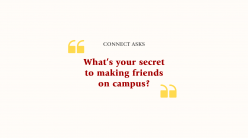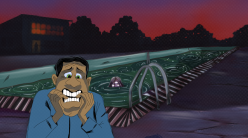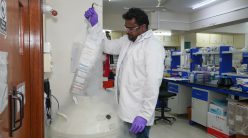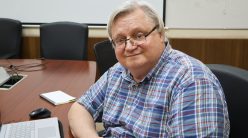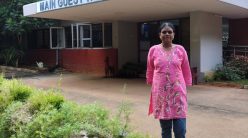Student conference has been fostering India’s conservation community for 14 years
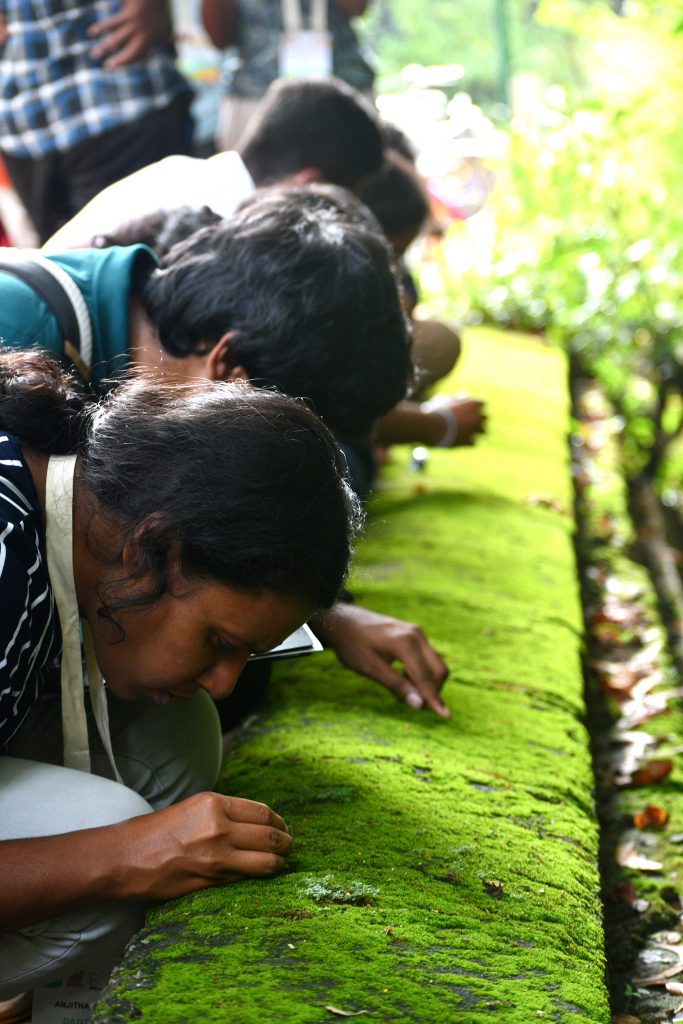
“How many of you have been chased by an elephant?” is not a typical question you’d expect to hear at a conference. But it seems to fit right in at this one; many people raise their hands, some laugh. Standing at the front of the hall, Kalyan Varma is unsurprised. “It might seem funny in retrospect, but [it is] no fun when it actually happens, for us or the animal, is it?” he asks. Behind him, the large screen shows a photo of an elephant, clearly distressed, running towards the camera.
It is the fourth and final day of the Student Conference on Conservation Science (SCCS), Bangalore, and Kalyan, a conservation photographer, is leading a lively discussion on the ethics of wildlife photography and storytelling.
Outside the JN Tata auditorium on the IISc campus, the conference venue, the energy is just as spirited as it was on day one. People are attending stimulating workshops in different halls. Corridors are brimming with conversations ranging from how to use camera traps to what pants can deter leeches. Further down in the lobby, stalls set up by environmental organisations sell wildlife T-shirts, badges, books, make-your-own stamp postcards, and other merchandise.
There is a sense of camaraderie and excitement in the air, and it is contagious.
Working in conservation can be rewarding, but also challenging, distressing, and sometimes isolating
In its 14th edition, SCCS-Bengaluru, which happened on 9-12 October 2023, has returned as an in-person conference. After three years of gathering online due to COVID-19, over 600 people from across the country and southeast Asia have eagerly reunited. Conservationists, wildlife biologists, students, writers, artists, journalists, photographers and anyone passionate about conservation science have gathered for four days of intensive knowledge exchange.
“If you aren’t at the @sccsbng, are you really in #conservation,” reads a post by environmental journalist Bahar Dutt on social media platform X.
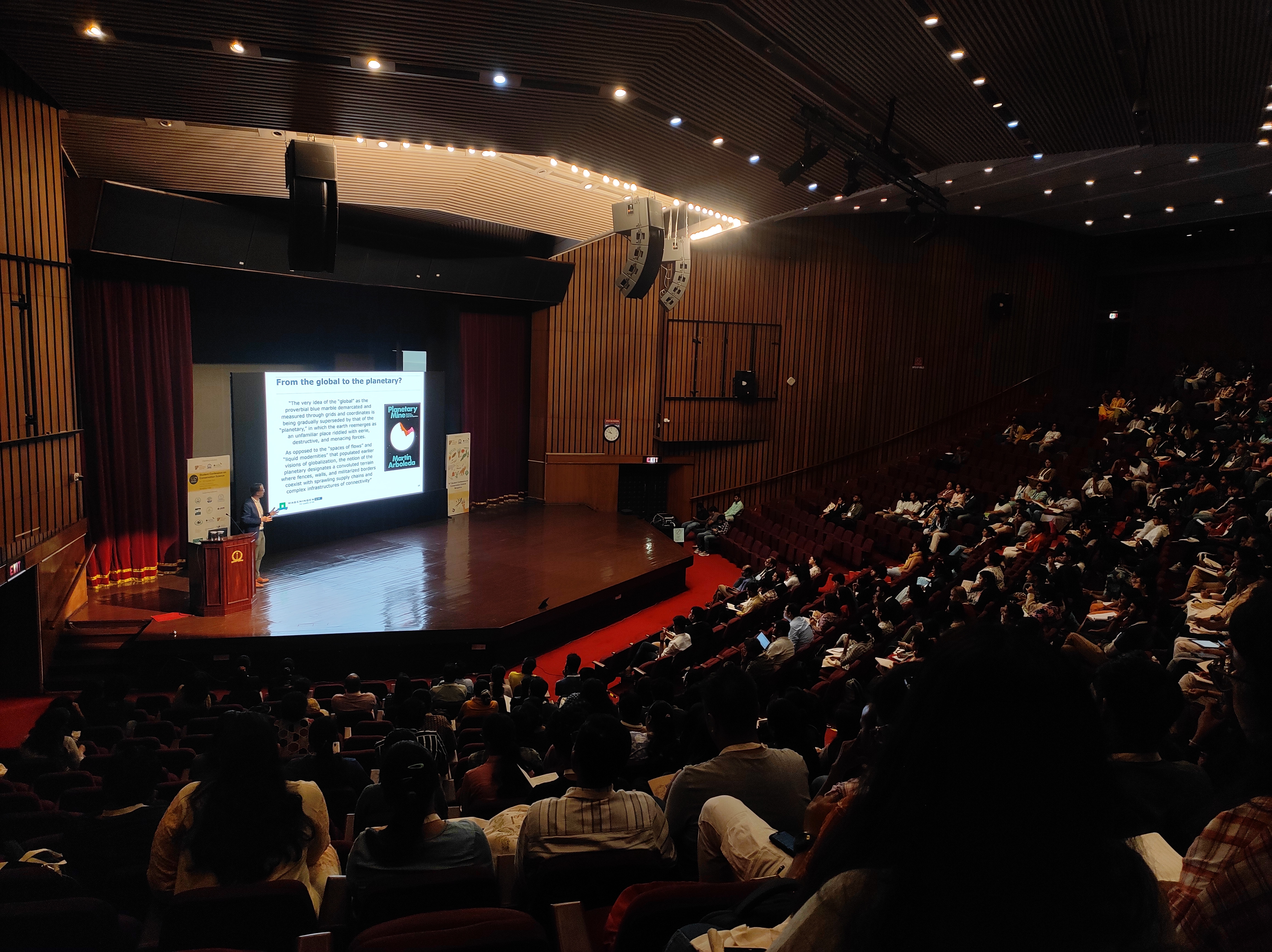
Hands-on learning
Working in the conservation sciences can be immensely rewarding, but at the same time challenging, distressing, and sometimes isolating. Days, weeks, even months are spent in labs or remote forests, or in writing grant applications and reports, or in dealing with the emotional toll of incidents like animal deaths and deforestation. Factor in academia’s traditional penchant for gatekeeping, and there are not many spaces for a young researcher to meet potential collaborators.
That is what, many participants say, makes SCCS one of its kind; between the plenaries, workshops, student seminars, posters, group discussions, walks, and countless informal breakout sessions, there are several possibilities for building connections.
Each day begins with a technical plenary, in which seasoned conservationists expand on the latest conservation discourses. In the very first talk, Bram Büscher, Professor and Chair of the Sociology of Development and Change group at Wageningen University, the Netherlands, calls for a conservation revolution. “Mainstream conversation is in an identity or existential crisis,” he tells the auditorium, making a case for a new kind of “convivial” conservation that proposes “a post-capitalist approach, promoting radical equity, transformation and environmental justice.”
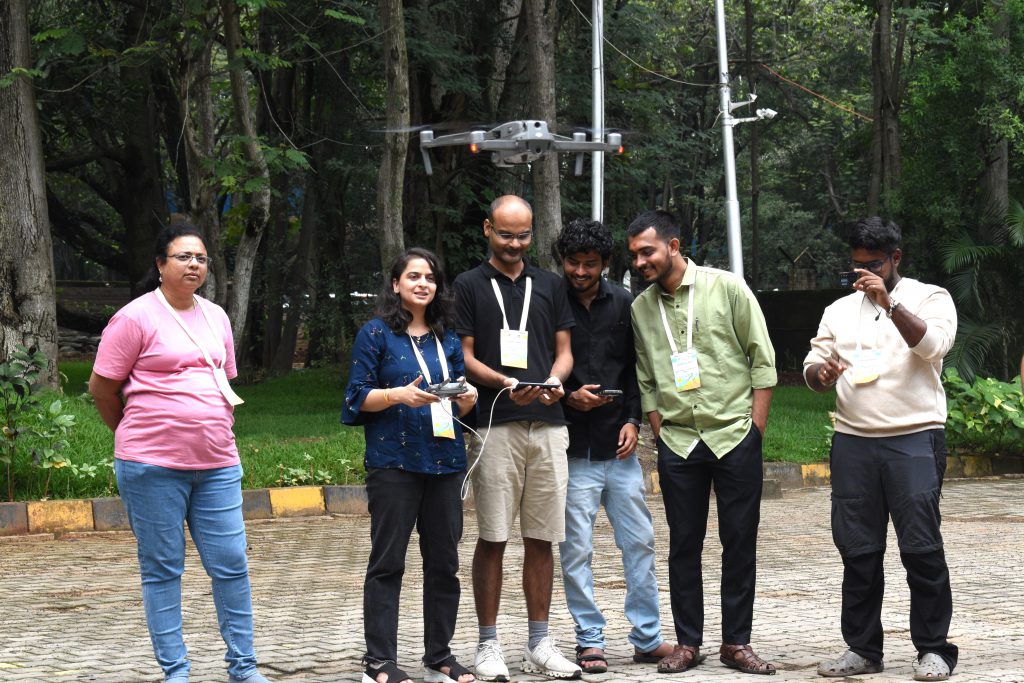
After the plenary, selected students take to the stage to present their research processes and findings, as fellow peers and mentors pose questions and share feedback. As each day progresses, the atmosphere becomes more interactive. The afternoons are time for workshops, prompting a rush to secure registrations at the front desk.
“Many interesting workshops are happening at once; it’s hard to choose just one,” says Krishna Priya, an MSc Environmental Science graduate from MIT-World Peace University, Pune. She has just walked out of the first part of a drone-based visual animal tracking workshop and is excited for the second half. “I can finally acquire the tools to process the 16 TB of footage from my desert fox denning study!”
Many like Krishna Priya are drawn to these workshops to network and get tips from field professionals. There are plenty to choose from: DNA metabarcoding, software tools like R and Quantum Geographic Information System (QGIS) for spatial data analysis, and bioacoustics – a legacy workshop that’s been around since 2011.
Some workshops are also designed to impart other crucial skills for field research, such as using behavioural science to strengthen calls for conservation action, incorporating traditional folklore in conservation studies, and so on.
In the Qualitative Research workshop, participants role-played complex social situations such as children arguing with parents to go out with friends or to marry someone of their choice. “We wanted to highlight that power is everywhere and manifests in many ways,” explains workshop convenor Budhaditya Das, Assistant Professor at the School of Human Ecology, Dr BR Ambedkar University, New Delhi. It is the second time he is organising this workshop, this year in collaboration with Venkat Ramanujam Ramani, a Postdoctoral Research Associate at the Ashoka Trust for Research in Ecology and the Environment (ATREE). “We picked these relatable case studies so participants could easily step into the shoes of the person they were arguing for.” Such role-play activities may not be able to capture more nuanced situations, like a tribal person facing conflict with tigers, but they can still nurture a sense of empathy in participants, he says.
Many workshops explored conservation through creative means, like drama, art, storytelling, and games
Budhaditya believes that the practice of conservation needs to involve people in both application and knowledge creation. “And that is where social scientists come in. Over the years, SCCS organisers have consciously included social science theories, ethos and frameworks into the conservation conversation,” he says.
This year, many workshops also explored conservation through creative means, like drama, art, storytelling, and games. “SCCS has become much more inclusive with workshops and presentations on wider topics like citizen science and local biodiversity,” says Divya R. Back home in Chennai, she is a young professional in the government sector and also volunteers at programmes for NGOs such as Nizhal. She says the workshops on conservation games, nature journaling, and tree identification equipped her with skills to continue her work.
Life-changing collaborations
Throughout its run, SCCS has been a springboard for many a student’s careers. Some even consider it a rite of passage.
“You start as a Bachelor’s student eager to meet role models, then you become a student being trained by [one of] them, and finally you attend to recruit students for your [own] projects!” remarks Rohit Chakravarty, a bat researcher currently working with Nature Conservation Foundation (NCF), who has been attending the conference regularly over the last decade.
Some participants who met at SCCS have gone on to launch joint conservation initiatives.
“In 2014, as a Master’s student in Wildlife Biology at AVC, Tamil Nadu, I got to meet senior scientists whom we had only read about in papers,” says Anuja Mital. She met the conservationist Gopakumar Menon, who was working on small-clawed otters at that time and has now started the Koile Meen project to raise awareness about freshwater stream conservation. “We went on to start a collective for freshwater conservation called L-IFE (Learn-Indian Freshwater Ecosystems) and organised many talks during the pandemic.”
A year after that, Anuja ran into wildlife biologist Sneha Dharwadkar. “Our shared love for all things reptiles has only grown over the past eight years and led to us founding Freshwater Turtles and Tortoises of India (FTTI),” she says.
There are also poster pinup sessions, networking events and sessions like “Birds of a Feather”, where groups discuss topics chosen by the crowd, whether it is about conserving grasslands or tackling a toxic supervisor. Most fun of all are the morning tree and bird walks and a night time loris walk around the IISc campus.
SCCS has been a springboard for many a student’s careers. Some even consider it a rite of passage
“A personal win for me this year was leading a tree walk for Janice Pariat,” says Sayee Girdhari, Project Coordinator for SeasonWatch, a citizen science project that follows seasonal changes in common trees of India. Janice is a renowned nature writer and author of the novel, Everything the Light Touches, and was one of the popular plenary speakers this year. “She brings so much acceptance and heartfelt emotions into everything she does. She inspired me to open up and speak not just as a botanist, but as someone who personally loves trees,” Sayee says. In her work, Sayee engages with many people to encourage tree monitoring and contribute to SeasonWatch. “But facts and science do not sway opinions, emotions do. This emotional and personal approach to outreach was a significant takeaway for me,” she says.
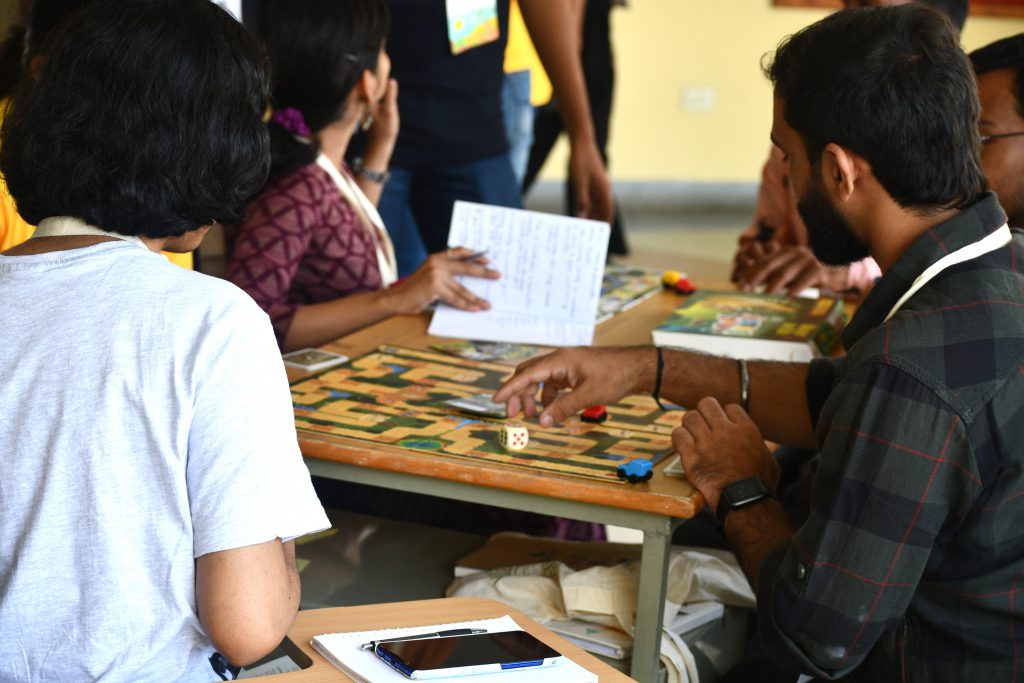
A safe space for all
SCCS was first started in Cambridge in 2000 and has now grown into a worldwide cohort of sister conferences at different venues – New York (USA), Australia, China, Hungary, Norway and Bangalore. The Bangalore edition began in 2010.
“The idea emerged when a few of us were doing our postdoc in Cambridge in the mid 2000s. We saw how the Cambridge edition allowed early career researchers – including PhD and Master’s students, and researchers – to come together,” says Kavita Isvaran, Associate Professor at the Centre for Ecological Sciences (CES), IISc, who was part of the organising committee for the first two years, and then again in 2016-17. She is now on the advisory board.
When Kavita and others returned to Bangalore, they discussed setting up an edition to cater to the global south with a larger group of people from diverse institutions including IISc, National Centre for Biological Sciences (NCBS), NCF, ATREE and many more. “We finally started it in 2010. SCCS Cambridge helped us get an initial seed grant for funding, and after the first two years we were completely independent,” says Kavita.
They tailored a different model for the Bangalore version. “Our two unique points, when we began SCCS-Bengaluru, were accommodating a larger number of participants, and organising many and diverse capacity building workshops – unlike other SCCS [editions], we have about 40+ workshops,” she says.
An organising committee with volunteer members plans intensively over 10 months. Separate working groups, comprising a subset of organising committee members and external members, plan different sections – plenaries, student presentations, and workshops. “We try our best to ensure a good balance between topics – natural sciences, interdisciplinary/social sciences, and humanities – and a balance in gender, across academia and practice, and geography too,” explains Samira Agnihotri, a participant and resource person in previous conferences, and a member of the current organising committee.
Over the years, the conference has evolved in scale and format. In 2018 and 2019, for example, pre-conference modules were organised to engage students from underrepresented groups or those hailing from rural colleges and institutions in India.
Initiatives like SCCS underscore how the collective strength of people working together can be powerful
During the pandemic, the conference went online. Taking advantage of the anonymity this provided, an online safe space was created for queer-identifying conservationists in 2021. “Over 40 people attended, showing the need for such a space,” recalls Ishika Ramakrishna, a doctoral fellow at the Centre for Wildlife Studies, and co-host. This Queer Circle has now evolved into a supportive community of about 100 across India and remains open to all. “We recently received a grant to keep this space functional in between conferences, and to take it further as training programmes for NGOs. We’re very excited,” she shares.
This year, another circle for neurodivergent individuals was initiated, which was well-received. SCCS also hosted a mandatory session on Prevention of Sexual Harassment (POSH) and introduced a collective named Conservationists and Ecologists Against Sexual Harassment (CEASE). “Despite institutions having mandatory Internal Committees as per the POSH Act, we felt the need to create awareness about what constitutes sexual harassment, especially since the nature of work in wildlife biology and conservation often involves travelling and staying in relatively remote areas with poor connectivity,” explains Samira.
Although raising funds every year can be a challenge, SCCS-Bengaluru has several benefactors who continue to contribute every year, she adds. “Many people come together to make this phenomenon a success – volunteers, well-wishers, resource persons, mentors and students. We are like a large, extended family.”
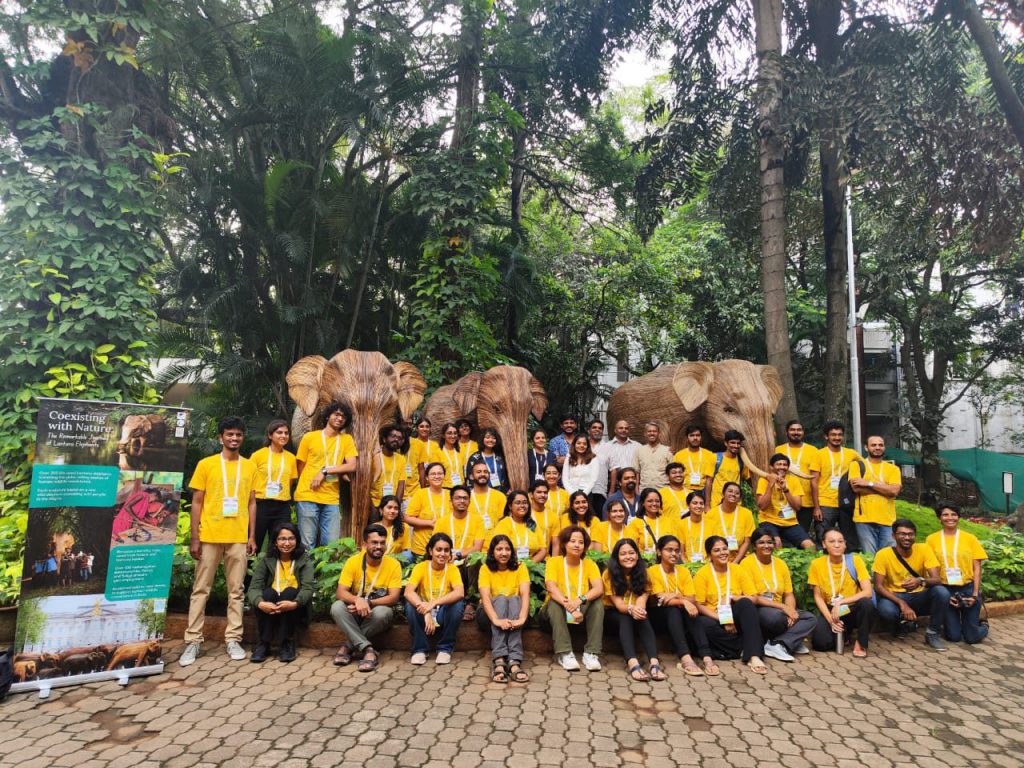
Power of people
The sentiment of family echoes throughout the conference and is especially underscored in the final plenary by Rita Banerji, award-winning conservation filmmaker, and founder and project director of the Green Hub initiative.
“Engaging more youth in conservation, with local narratives and local voices – that’s how everything came together in the Green Hub project,” she tells the packed auditorium. Started in the northeast and now also in central India and the western Himalayas, Green Hub offers fellowships to youth from local communities to document their own stories via video – a feat, Rita emphasises, only possible because of a large network of individuals who step in as mentors.
“Can we grow a forest of people, then? Can we believe that this is what will bring about the change, and not get deterred by the scale of destruction, by the felling of trees or the building of buildings or the drying of lakes?” Rita concludes. The applause is resounding.
Initiatives like SCCS underscore how the collective strength of people working together can be powerful. Dutch primatologist Frans de Waal once wrote that he is “convinced that it is these cooperative tendencies that have brought us [humans] as far as we have come.”
As the conference winds down, people gradually trickle out of the building, hugging each other, saying their goodbyes, and promising to meet next year. Some congregate for final selfies around the four elephants standing sentinel at the entrance, crafted from invasive recycled lantana weed by adivasi artisans from around Mudumalai and Male Mahadeshwara Hills, under the patronage of the socio-environmental enterprise called The Real Elephant Collective. These life-sized sculptures have journeyed across the Nilgiris and even to the UK, raising awareness about indigenous integration, invasive species control, and wildlife coexistence. These elephants are more than happy to pose for photographs.
